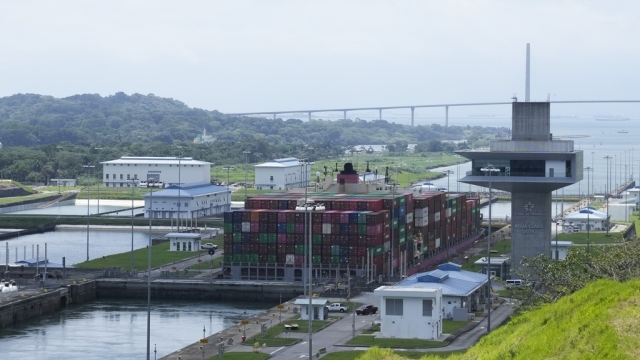Commercial ships, part of the foundation of global commerce, are facing historic delays as they attempt to travel through the Panama Canal amid months of drought conditions.
Months of low precipitation have reduced the amount of water in the canal, water that is required to permit shipping vessels to pass through the canal's locks at the normal rate.
Scores of ships were seen waiting in the open sea for a chance to pass through the canal, as authorities implemented controls to reduce the number of ships passing through, working amid low water levels.
The authorities called it an "unprecedented drought" with "no historical precedence."
SEE MORE: Montana youth win historic case against state fossil fuel policies
An analyst with the Financial Times said the cost of shipping from China to the U.S. Gulf Coast has spiked by more than one-third since the end of June.
Tankers carrying liquefied natural gas saw their wait times to pass increased from eight days to 18 days within a window of just a few weeks. Canal authorities said the restrictions for tankers could be held in place into next year.
The state-owned Panama Canal Authority, which is also referred to by the acronym ACP, for name's Spanish translation, implemented a restriction on the number of vessels allowed to pass through the canal in late July. Each day an average of 32 ships is allowed to pass through, which was cut down from the previous 36. Someindustry analysts hadthat number at around 40 vessels previously.
The Panama Canal Authority introduced what some are calling an "ambitious" $2 billion project to try to sort out its problems with the disappearing freshwater supply. That is expected to be a multi-year project.
Analysts said the canal authority has set up an agreement with the U.S. Army Corps of Engineers to do an assessment of the work the improvements would require.
ACP hasreportedly put multiple water conservation measures in place this year, including the use of storage basins in the canal's Neopanamax locks meant to help reuse a portion of the 52 million gallons of water that is flushed into the sea after each transit operation is made.
Trending stories at Scrippsnews.com



